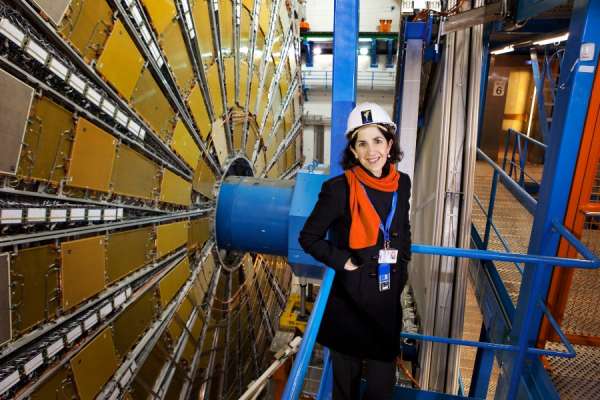Pope Francis appoints the first physicist to the pontifical academy

Pope Francis appointed the Director General of the European Organization for Nuclear Research (CERN) to the Pontifical Academy of Sciences on Tuesday.
The Holy See press office said on September 29 that the pope had appointed Fabiola Gianotti as an "ordinary member" of the Academy.
Gianotti, an Italian experimental particle physicist, is the first female director general of CERN, who runs the world's largest particle accelerator in her laboratory on the border between France and Switzerland.
Last year Gianotti became the first director general since the founding of CERN in 1954 to be re-elected for a second five-year term.
On July 4, 2012, he announced the discovery of the Higgs boson particle, sometimes referred to as the "God particle", the existence of which was first predicted by theoretical physicist Peter Higgs in the 60s.
In 2016 she was elected for her first term as director general of CERN, home to the Large Hadron Collider, a nearly 17-mile loop under the Franco-Swiss border that began operating in 2008. Her second term will begin on January 1. . , 2021.
The Pontifical Academy of Sciences has its roots in the Accademia delle Lince (Accademia dei Lincei), one of the first exclusively scientific academies in the world, founded in Rome in 1603. Among the members of the short-lived Academy was the Italian astronomer Galileo Galilei.
Pope Pius IX re-established the Academy as the Pontifical Academy of the New Lynxes in 1847. Pope Pius XI gave it its current name in 1936.
One of the current members, known as "ordinary academics," is Francis Collins, director of the National Institutes of Health in Bethesda, Maryland.
Past members include dozens of Nobel Prize-winning scientists such as Guglielmo Marconi, Max Planck, Niels Bohr, Werner Heisenberg and Erwin Schrödinger, known for the “Schrödinger's cat” thought experiment.
A 2018 New York Times profile described Gianotti as "one of the most important physicists in the world".
When asked about science and the existence of God, he said: “There is no single answer. There are people who say, "Oh, what I observe leads me to something beyond what I see" and there are people who say, "What I observe is what I believe in and I stop here". Suffice it to say that physics cannot prove the existence or otherwise of God “.